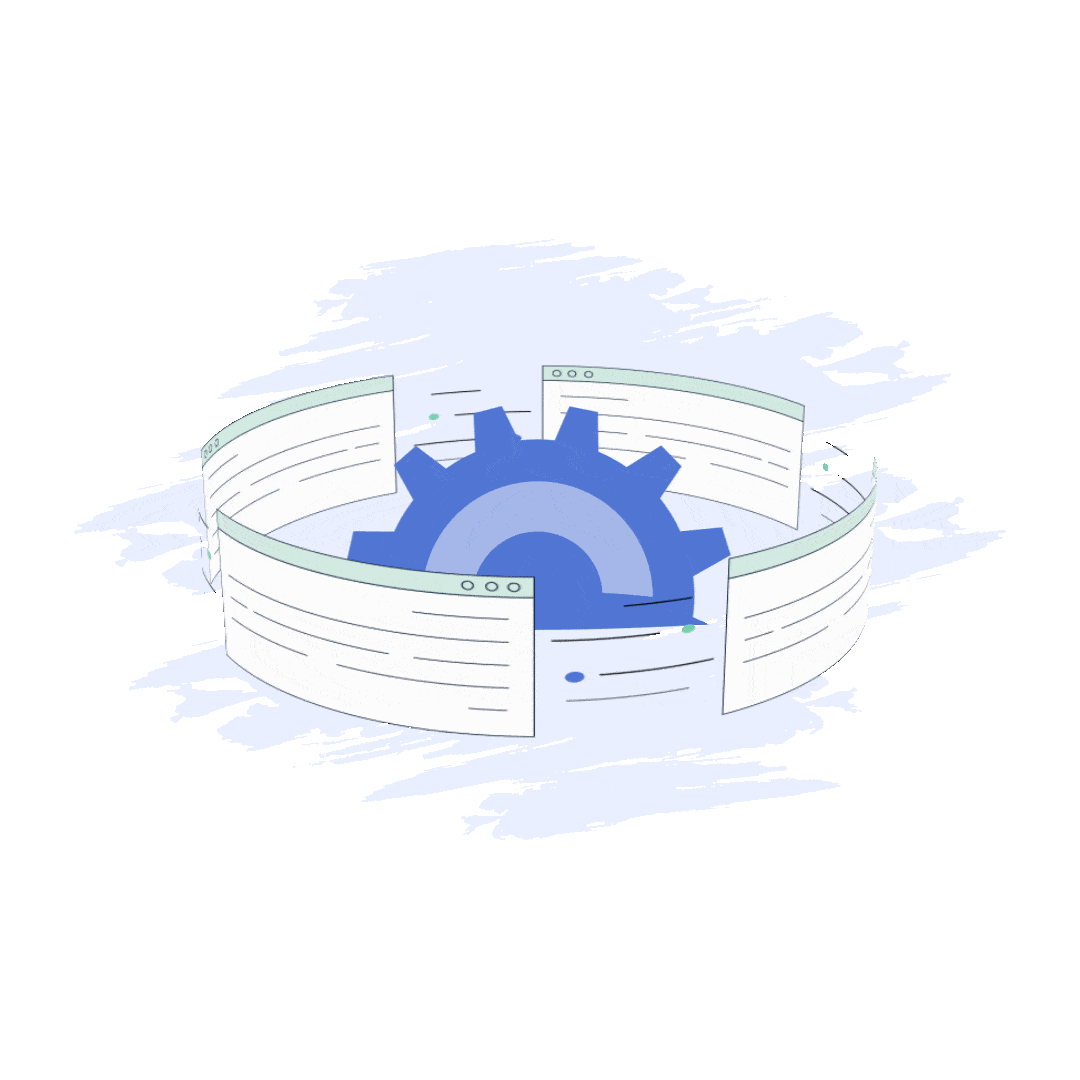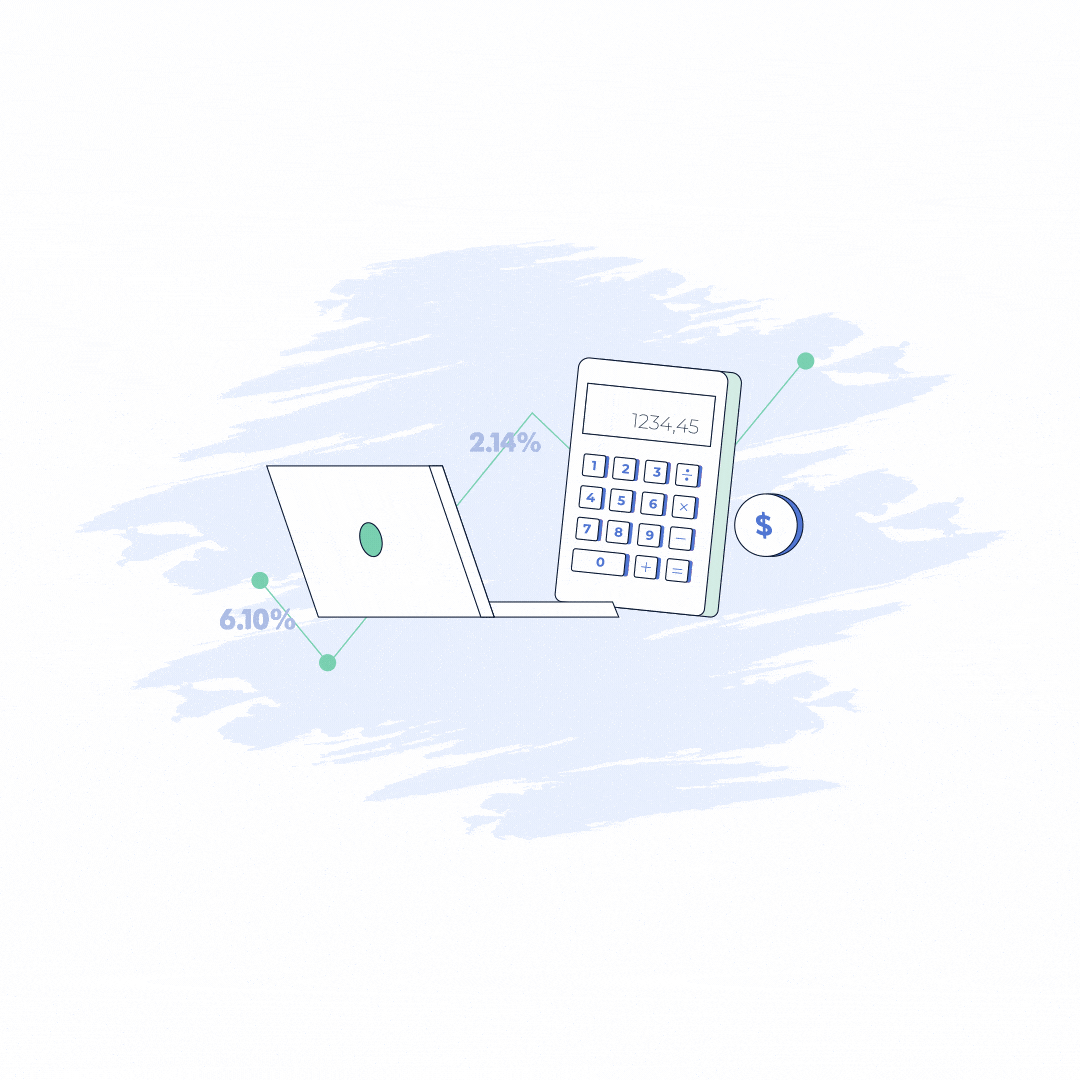Best sales tax software for small business
Learn how to choose the best sales tax software for your small business.
Simplify your tax compliance with our top-rated solutions for accurate and efficient tax management.
Why Zamp?
Combining technology and help from sales tax experts is a game changer.
We do the heavy lifting, so you don’t have to.

Fully Managed Solution
Stressing over sales tax is a thing of the past. All you do is click approve, and we handle the rest. You'll always be up-to-date and sales tax compliant.

Developer Friendly Sales Tax API
Connect your existing e-commerce, marketplace & ERP systems within minutes, and use Zamp’s API for roof-top accurate sales tax calculations.

One Price
One simple price that scales with your business. No overages, no hidden fees, no surprises.
Best Sales Tax Software For Small Business
Looking for the best sales tax software can be challenging for small business owners. You have to consider a range of features, ensure the software is compatible with your existing systems, and find something that fits your budget.
And, this all needs to be done while keeping up with changes in tax laws.The ideal choice can make managing our businesses easier, saving time and preventing costly mistakes related to taxes. The question is, how do we identify the best automated sales tax solution for our needs?
Understanding the Benefits of Sales Tax Software
It's important for small businesses to understand and comply with sales tax regulations to avoid fines and stay on the right side of the law. Managing sales tax compliance is a shared challenge among small businesses and is essential for operating successfully within the wider business ecosystem.
The best sales tax software serves as a support to your team. Designed to reduce the hassle of tax calculations, filings and payments, sales tax software keeps your business in compliance with the ever-changing sales tax rates and legal requirements.
You'll want to identify the key features that top-rated solutions offer to ensure you're getting the best tool for the job. Let's examine how the right tools can boost your business's efficiency and ensure you're following tax laws correctly.
The best sales tax software offers accurate tax rate determination, integrates seamlessly with your sales platforms, and automates filing and remittance. It's there to streamline your workflow and keep you in the loop with real-time reporting.
You'll also want a system that not only simplifies nexus determination but also provides you with a supportive network of experts.
Top Sales Tax Software Options for Small Businesses
You're in the market for the best sales tax software, and it's essential to know how they stack up against each other. We’ll explore the standout features, usability, and cost-effectiveness of the top contenders.
You'll also get insights from expert opinions and user reviews to ensure you make an informed decision that suits your small business's unique needs.
The top contenders when evaluating sales tax software are Avalara, TaxJar, and Zamp. Let’s look at each one individually.
Avalara
Avalara is a provider of cloud-based tax compliance solutions, focusing on automating the processes of sales and use tax calculation, filing, and remittance for businesses operating across multiple jurisdictions. The software is designed to integrate with a variety of business systems and manage tasks such as tax rate determination, exemption certificate management and return preparation. While it offers features like a user-friendly interface, Avalara falls short when considering both pricing and support.
Read our in-depth comparison: https://zamp.com/zamp-vs-avalara/
TaxJar
Following Avalara, TaxJar emerges as another player in the cloud-based tax compliance landscape, focusing its offerings on e-commerce businesses. TaxJar helps business owners manage sales tax by automating calculations, reporting, and filings. The software integrates with a variety of e-commerce platforms and payment processors and aims to simplify the monthly reporting process. TaxJar lacks phone-based customer support, offering assistance solely through a contact form submission. This setup may not be ideal for business owners requiring immediate resolution of issues.
Read our in-depth comparison: https://zamp.com/zamp-vs-taxjar/
Zamp
Zamp has a distinct approach to pricing, offering a clear, single rate without hidden fees or surprises. This straightforward pricing model is complemented by integration features with multiple e-commerce platforms, simplifying the tax compliance process for businesses operating across multiple sales channels.
Zamp is known for its precision in collecting sales tax, guiding businesses on where they need to collect sales tax, and registering them in all necessary states. This software also provides state-specific sales tax reports and filing. Onboarding is designed to be quick and personalized, reducing the time it takes to get up and running.
Unlike Avalara and TaxJar, Zamp has an in-house customer support team that’s available by phone or contact form. With responsive support, Zamp is well positioned as a hassle-free solution to sales tax compliance.
Book a call today
We'll answer all of your sales tax questions & address any of your concerns to ensure that you never have to worry about sales tax again-
1Book a free 30 minute call
-
2Meet with one of our experts
-
3Get sales tax off your plate
Expert Opinions
While Zamp offers compelling features for small businesses, it's essential to consider what industry experts and existing users say about their experiences.
“We want our team’s full focus on creativity and growing the business. Not sales tax and the latest notices from 15 different states. Zamp’s managed solution is unique as they really do it all. Moving over to Zamp from our previous provider was a no-brainer." - Allen Shafer, Co-Founder of Fulton & Roark.
"I provided Zamp with my existing registration information and they set everything up for me. My advice to other businesses is to get started with Zamp right away." - Kate Savage, Digital Marketing Manager at Otteroo.
"Their team made sure we weren’t double remitting taxes that the social platform already collected. I trust them to keep our business compliant. And if anything ever comes up, I know they are just a phone call away." - Andy Nalla, CEO of Ghost Golf.
"At Amped Bikes, our passion is motorsports. We operate in a lean, high-growth environment. When it comes to sales tax, Zamp is the perfect partner as they take care of it all so we don't have to worry about it." - Amy Dalley, Co-Founder of Amped.
Zamp's streamlined onboarding process aims to make your setup effortless. Here’s what you’ll need to get set up.
- Your company's basic details, including the company name, address, and the states where you operate.
- The bank account and routing number for the account you intend to use for sales tax payments to the states.
- Your current sales tax registration details for each state you're registered in, including the registration number, and your login credentials.
- A description of the products and services you offer.
As you can see, Zamp’s onboarding process will allow you to get up and running quickly.
Finding the Best Sales Tax Software for Your Business
Having explored the various benefits of sales tax software, it's clear that picking the right system is key to maintaining compliance and streamlining tax operations for your small business.
Before making a commitment, scrutinize your options to ensure the sales tax software you choose aligns perfectly with your small business needs. Take your time to compare features, ease of use, and customer support. Look for reviews from businesses similar to yours and consider how their experiences can inform your decision.
Find the solution that resonates with your unique situation, and you'll set your business up for smoother sailing ahead.
Book a call today
We'll answer all of your sales tax questions & address any of your concerns to ensure that you never have to worry about sales tax again-
1Book a free 30 minute call
-
2Meet with one of our experts
-
3Get sales tax off your plate
Sales Tax Software for Small Business FAQ
The ideal sales tax software for small businesses should offer automatic tax rate determination based on location, seamless integration with accounting and e-commerce platforms, easy tax filing and remittance across multiple jurisdictions, and robust reporting tools. Additionally, it should provide a user-friendly interface that simplifies the tax compliance process for businesses with limited accounting resources.
The ideal sales tax software for small businesses should offer automatic tax rate determination based on location, seamless integration with accounting and e-commerce platforms, easy tax filing and remittance across multiple jurisdictions, and robust reporting tools. Additionally, it should provide a user-friendly interface that simplifies the tax compliance process for businesses with limited accounting resources.
Sales tax software automates the calculation, collection, and filing of sales tax, significantly reducing the manual effort required. By automatically updating tax rates and rules, it ensures accuracy and compliance, freeing up business owners to focus on core business activities rather than navigating the complexities of tax laws across different jurisdictions.
Yes, quality sales tax software helps small businesses identify where they have a sales tax nexus, which is the obligation to collect sales tax based on sales or physical presence in a state. It can analyze sales data to alert businesses when they're approaching the threshold in new jurisdictions, ensuring they remain compliant with state-specific tax laws.
The difficulty of integration depends on the software and the business systems in use. However, the best sales tax software for small businesses is designed to offer straightforward integration with popular accounting, e-commerce platforms, and payment processors, making the setup process as smooth as possible. Many providers also offer customer support and onboarding assistance to facilitate integration.
Support services vary among sales tax software providers but typically include access to an online knowledge base, email support, and live chat. Some providers may also offer phone support or personalized onboarding assistance to help set up the software and integrate it with your business systems. It's important to choose a provider that offers the level of support your business needs to ensure a smooth and effective tax compliance process.
Book a call today
We'll answer all of your sales tax questions & address any of your concerns to ensure that you never have to worry about sales tax again-
1Book a free 30 minute call
-
2Meet with one of our experts
-
3Get sales tax off your plate


